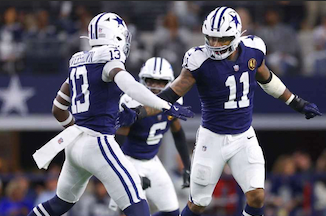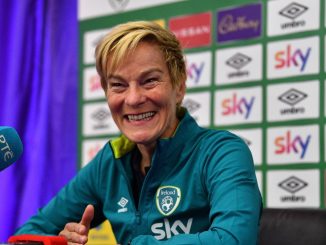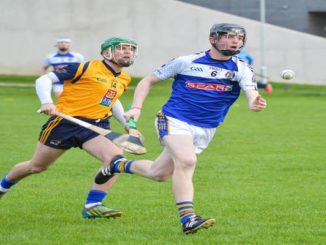
Throughout the past decade, Dublin have effectively voided the Leinster Championship of any real competition, and enjoyed unprecedented consecutive ownership of the Sam Maguire, only broken this year by the tightest of margins. This is the antithesis to the career of former Dublin player Paddy Christie. In 2007, Christie retired after a 12 year intercounty career with three Leinster championship medals and an 2002 All – Star award. During the 2000’s, a period dominated by Tyrone and Kerry, in any other Leinster county, those types of credentials would form a fairytale like career. But the agonising absence of an All – Ireland medal, laments Christie’s career alongside the likes of Wexford’s Matty Ford and Tipperary’s Declan Brown as bright spots in an otherwise bleak period. Christie is undoubtedly one of the early disciples of the ruthless physiological approach which would propel Dublin football to their current standing, but his selfless and touching story goes far beyond a missing medal.
Proud of the Career.
When Dublin won their 2011 All – Ireland, it was their first championship since 1995. The team in which Christie was a member of, contained multiple All – Star winners including future player of the year award recipients Alan Brogan and Stephen Cluxton, and given the level of competition during the 2000’s, appeared relatively comfortable in Leinster. However while Paddy agreed he played on a “good team”, highlighting the fact that he didn’t want this thought to be exclusively linked to the fact he was a defender, Christie felt Dublin were “a little bit short up front”. One of the reasons why during the mid 2000’s, the latter years of Christie’s career, Dublin commenced on an upward trajectory, was that they were “dangerous up front”. Reflecting on moments of darkness in his career, perhaps among them losing three consecutive Leinster Championship finals in 1999, 2000 and 2001, Christie called attention to Dublin “rarely going out with a very very strong fifteen” and that even during games of crucial importance, where Dublin were on the brink of something, the team were “always carrying players”. He remembered back to an All – Ireland final when he believed Jim Gavin brought Paul Mannion and Brian Howard on as substitutes and jokes “if we had Paul Mannion and Brian Howard, they would be midfield and full forward”.
In 2020, Cavan won the Ulster Championship for the first time since 1997, and Tipperary, ironically coached by Paddy Christie, won the Munster football championship for the first time in 85 years. Achievements of that magnitude for intercounty teams who have become accustomed to far more disappointing and shorter summers are stunning by their nature, but fundamentally difficult to replicate. Without implying insult, the expectations of the Cavan and Tipperary supporters, for example, cannot be accessed on the same level as Dublin Supporters. In terms of questioning whether not winning an All – Ireland medal might decrease the value of Paddy’s three Leinster medals, Christie responded categorically, saying that the experience of winning the 2002 Leinster Championship felt “very very close to winning an All – Ireland ”. Having been retired for more then a decade and the current coach of the DCU Sigerson team and Tipperary, Christie reflects on his career in the mature manner which one might expect from a primary school principal. Not capturing a celtic cross medal was “just life”.
Competition is Not Dublin’s problem.
At the exclusion of the 2010 Leinster championship final contested by Meath and Louth, a dramatic match now defined by an even more dramatic and infamous conclusion, the past decade has provided few moments of genuine note. After Meath’s outlier win in 2010, Dublin would win ten championships between 2011 and 2021 in a consecutive series which remains on track to continue. Speaking about the current dystopian situation of the Leinster football championship, Christie concedes that “Leinster became a dessert for everyone bar Dublin”. It is more than difficult for a millennial football supporter to comprehend or imagine that the contribution of Kildare and Meath, once football strongholds, made the Leinster championship arguably the second most cut – throat provincial championship. But more than anyone it is Paddy’s regret that “Meath and Kildare have disappeared off the face of the earth”. Despite Tippeary winning the Munster Championship in 2020, Chriisie spoke about the importance of players having “something to aspire to”. While winning an All – Ireland may be a narrow range to assess a player’s overall career, it is unlikely that it is even within the grasp of weakrr counties to win one of the provincial championships. On championship reform Christie joined the ranks of many intercounty managers who have expressed support for proposal B and maintained that “there is flaws in the system”.
In terms of decreasing match attendance figures alongside a general steady decrease in the competition’s credibility, Dublin’s dominance while glittering and mesmerizing, has been profoundly negative. Christie would be first to admit that the sheer extent of Dublin’s dominance and it’s rigidness, “did a lot of damage”. But Paddy argued that it is not actually the responsibility of Dublin to ensure that competition is fair and equal. This is a thought which might appear obvious, but perhaps during the period of most unbearable anti – Dublin frustration, it might have been appealing to shoot the messenger. Also harking back to the heavy Leinster football battles which would steer the direction of the sporting summer, Christie questioned the role of other intercounty teams in the circle of blame around Dublin Dominance. Paddy highlighted that the “likes of Meath were incredibly weak” and attributed an element of reasoning around Dublin’s dominance to the failure that other intercounty teams “didn’t get their house in order and didn’t have the right people involved”.
The current Dublin football manager Dessie Farell appears to be between something of a rock and a hard place. It was never going to be possible to surpass the achievements or standards set by Jim Gavin, or for that matter, equal them. When Farell was appointed at the latter end of 2019, the trajectory of Dublin football even purely on the basis of the age profile of current squad members and the relative lack of success by development squads in the past half decade. Prior to the commencement of the 2021 championship the exit of Cluxton, Mannion and McCaffery put the final nail in the Dublin seven in a row dream. It possibly wouldn’t be incorrect to say that if Farell announced his resignation as Dublin manager in the morning, he might be remembered as the manager at the helm when Dublin stopped winning. Christie agreed that in light of externetial factors, none more than the curious absence of Stephen Cluxton who Christie revealed “can be narky and a bit neagitve”, but is an “absolute leader”, should Farell take Dublin back to success in 2022 it will be a “sersious achievement”. It is ironic that Dublin’s defeat in 2021 may be exactly the driving force which spurs them back to the summit in 2022.
Ballymun Kickhams.
There are a number of reasons why Paddy Christie’s reputation proceeds him across the football landscape, foremost among them, the grassroots coaching work which he committed himself to, propelling Ballymun Kickhams to Dublin Senior championship success in 2012 and 2020. Reflecting on his coaching career with Ballymun, having taken two teams from their formative underage years to the edge of senior, Paddy says “this wasn’t part of a plan”. Christie would describe to me how as a Dublin football player there was a sort of obligation to try and advance standards. As one of the most influential mentors to the career of Philly McMahon, James McCarthy and John Small among others, more than most, Paddy’s contribution to Dublin’s dominance has been vital. On a more somber note, Christie referred to the verbal and physical abuse he as manager would receive on the sideline when his fledgling Ballymun team would beat those who are more established saying “it was difficult if you wanted to let it be difficult”. Paddy spoke about reaching the top level and how in sport “there will always be snipers at the bottom of the mountain trying to shoot up at you all the time”.
At times the wider stigma of the Ballymun area was inherited by Ballymun Kickhams. According to Paddy, the demolition of the Ballymun towers “definley did” represent the opportunity for a new start for the area. Christie remembers back to picking up and dropping home some of his players, and being unable to ignore “the smell of urine on the stairs’ ‘. Paddy conceded that there was “still a big drugs problem in the area, but things had improved dramatically from 2011 onwards. Even having achieved so much, one of the major regrets of his career was not being able to help more, “there were certain fellas that I probably could have saved and I eventually just let them go, and I regret that”. Chrisie described the major challenge of steering young people away from people who sell drugs as “very very financially stable”, noting that for many young people, naturally, money is a driving factor. But for the likes of 8 time All – Ireland winner and successful entrepreneur Philly McMahon, who without the influence of Christie might not have been saved, Paddy spoke about the Ian Roberson model. Ian Robertson was a former Dublin and Ballymun Kickhams teammate to Paddy Christie. Both studied together in DCU and Christie jokes “he went on to become a millionaire, I’m just a teacher”. Ian Robertson was from the center of Ballymun, but has a masters in physics, is a qualified doctor and surgeon in Beaumont Hospital. It was his influence in the dressing room, which was profoundly positive for the likes of McMahon when they were first selected for senior duty.
One can’t help but think that the coaching experience which Paddy Christie is soaking up in DCU and Tipperary might be leading to something special with Dublin, in the future. On that issue Paddy reassured me of how comfortable he felt in Tipperary, but joked “my kids might see me a bit more”, and on a serious note said “ in the future I’d have to consider the travelling”. Christie represented Dublin at the intercounty level for more than a decade and said “I have a special place in my heart for Dublin”. But on his Tipperary obligations he reiterated to me the importance of loyalty as a principal saying, “I like to think I value loyalty”. Whatever should occur to the career of Paddy Christie in the future, his reputation as one of football’s most honest and hard working stakeholders is assured. While his contribution to Dublin’s dominance may be indirect, it has been utterly invaluable.



